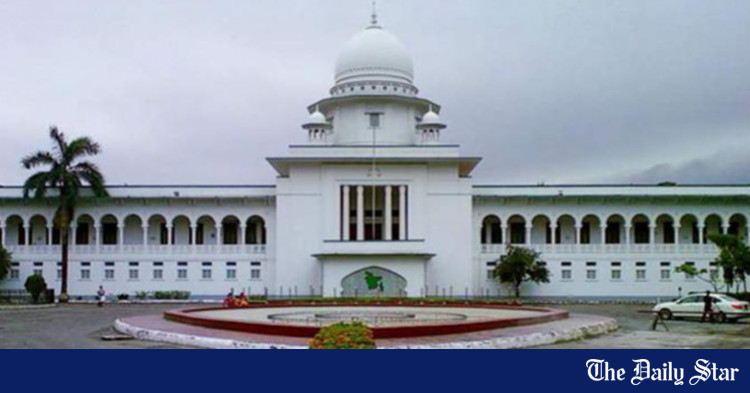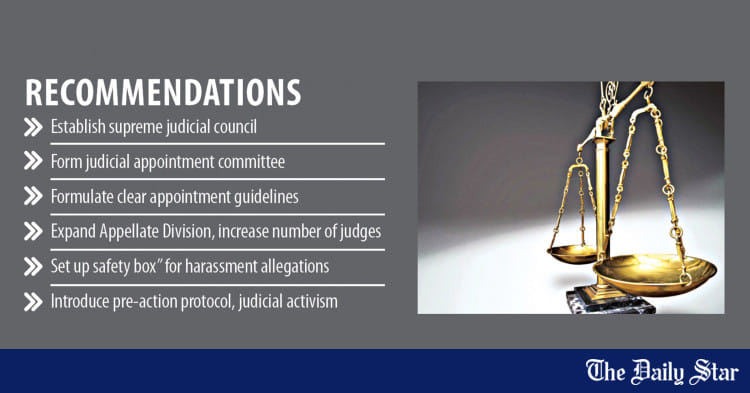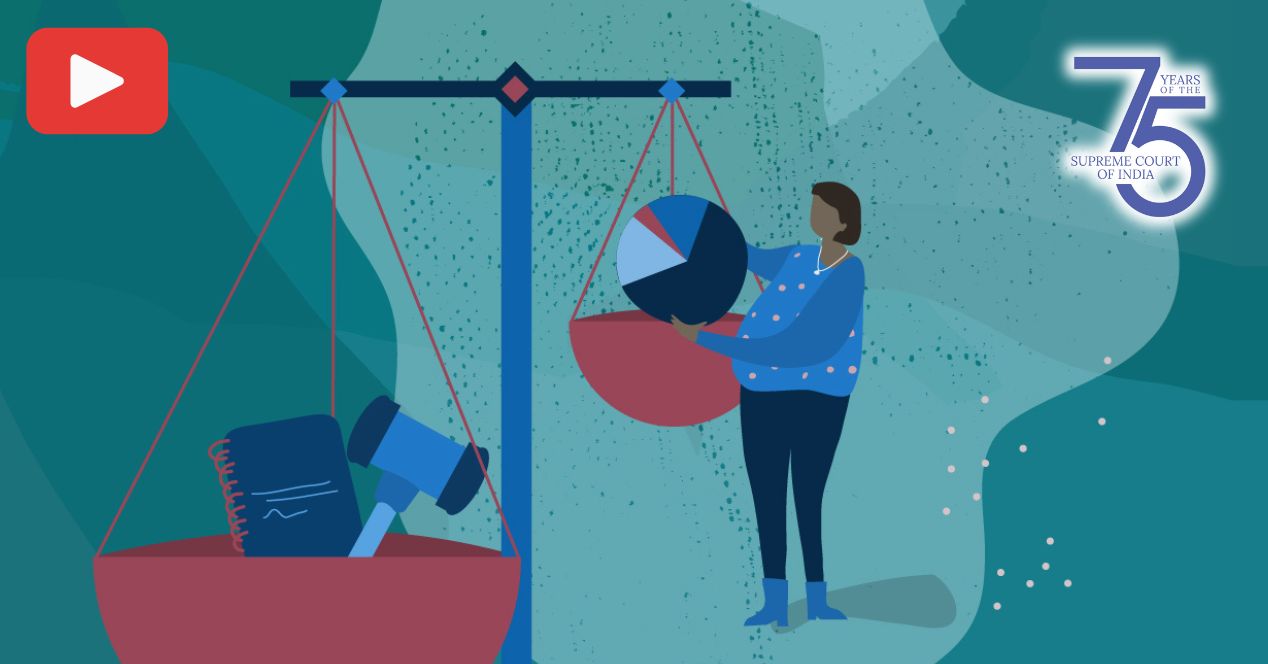Judiciary Reform: SC mulls minimum age of 50 for HC judges, 60 for AD
M Moneruzzaman 27 December, 2024, 23:36
The Supreme Court and the Judiciary Reform Commission have prepared separate draft ordinances, with the Supreme Court’s draft ordinance proposing 50 years as the minimum age for appointing High Court judges and 60 years for Appellate Division judges.
The law ministry drafted another ordinance emphasising the formation of a Supreme Judicial Appointment Council to assist the Chief Justice in consulting with the president on appointing Supreme Court judges in a strengthened, effective and transparent manner.
The draft ordinances, aimed at ensuring transparency and meritocracy, suggest establishing two different bodies — the Judicial Appointment Council and the Supreme Court Judges’ Appointment Commission.
The Supreme Court’s draft ordinance proposes the creation of a Judicial Appointment Council to be chaired by the Chief Justice and having nine members, including two senior-most Appellate Division judges, two senior-most High Court judges (one from the lower judiciary), the Attorney General, the Supreme Court Bar Association president, a university law professor nominated by the University Grants Commission and two citizens to be elected through the process.
The council would assess candidates based on qualifications outlined in Article 95(2)(c) of the Constitution and additional criteria, such as citizenship, educational background, work experience, honesty and loyalty to the law.
Applicants below the age of 50 would be disqualified for appointment as additional High Court judges, while candidates for the Appellate Division must be minimum 60 years old.
The council would also recommend names for appointment to the Appellate Division directly.
The council would hold biannual meetings to assess pending case statistics in the High Court and Appellate Division, advise the president in writing on the need for judicial appointments.
The council would publish public notices seeking applications for Supreme Court judges, shortlist candidates and conduct oral tests.
The Judiciary Reform Commission, formed by the government, proposed a Supreme Court Judges’ Appointment Commission to be chaired by the Chief Justice with eight members, including two Appellate Division judges, two High Court judges, the Attorney General, the Supreme Court Bar Association president, a retired Chief Justice or Supreme Court judge and a Supreme Court lawyer nominated by the Bar Association president.
The commission has not proposed imposing an age limit for judges elevated to the High Court or Appellate Division, but has suggested 10 years of professional experience following the constitutional requirement and a three-year income tax return statements to be eligible for the appointment.
It said that names of the shortlisted candidates would be published on the commission’s web site to invite public feedback.
It prohibits certain members, such as High Court judges and the Attorney General, from participating in discussions related to their elevation or regularisation.
Common provisions in both the drafts suggested a two-year term for citizen or retired judge members.
A quorum of five members would be required for meetings (or three in specific cases).
The president must appoint judges within 15 days of receiving recommendations from the Chief Justice.
If further examination is needed, the president can send the recommendations back, extending the timeframe by 15 days.
The Chief Justice would determine the required number of judges for both the High Court and Appellate Division and notify the president of the need for appointments.
However, the Chief Justice would not be obligated to inform the president about the regularisation of additional High Court judges, as outlined in the commission’s ordinance.
The council would issue public notices for applications and conduct interviews while the commission would seek public opinions on shortlisted candidates through its web site for transparency.
Article 95(1) and (2) of the Constitution outlines the qualifications for Supreme Court judges, requiring Bangladeshi citizenship and at least 10 years of experience as a Supreme Court advocate.
Both the drafts adhere to this framework while adding additional layers of scrutiny to ensure merit-based appointments.
These proposals are aimed at depoliticising judicial appointments and addressing long-standing criticisms of the selection process.
Noted Supreme Court lawyer Shahdeen Malik welcomed the move to frame laws for establishing a judicial appointment council or commission.
He pointed out that the fifth amendment to the Constitution in 1978 added Article 95(2)(c), mandating qualifications for Supreme Court judges to be set by law.
However, successive governments have failed to enact such a law, allegedly to enable political appointments or nepotism.
In 2008, the military-backed caretaker government introduced an ordinance establishing a commission for the appointment of Supreme Court judges.
However, the succeeding Awami League government chose not to ratify the ordinance.
Article 95(1) of the Constitution stipulates that the Chief Justice is appointed by the president, while the other judges are appointed by the president in consultation with the Chief Justice.
Over the years, a set number of additional High Court judges has been appointed for a two-year term, drawn from Supreme Court Bar Association members, government law officers and subordinate court judges in a non-transparent manner.
The elevation of High Court judges to the Appellate Division has also made in the non-transparent way.
Shahdeen Malik said that the appointments of SC judges had often been criticised for lacking transparency.
Supreme Court Bar Association president AM Mahbub Uddin Khokon described the two draft ordinances as being at a ‘premature’ stage.
‘The association cannot comment on these drafts. Many recommendations need further discussions before finalisation,’ he told New Age.
Khokon, however, said that the proposed commission, established under Article 95 of the constitution, aims to ensure transparency in the selection of Supreme Court judges as per the long-standing demand from the association.
The Bangladesh Judicial Service Association, representing subordinate court judges, however, criticised the inclusion of the Bar Association president and a lawyer nominated by the president as members of the Judiciary Reform Commission-proposed commission for appointment.
‘Such inclusion will not only create a conflict of interest, but also increases the risk of political interferences and bias in the appointment process,’ observed its secretary general, Muhammad Mazharul Islam, in a press release.
Speaking at a discussion on December 23, law adviser Asif Nazrul said that the law ministry was set to discuss draft proposals on the Supreme Court judges’ appointment law with experts today.
He said that the Supreme Court and reform commission drafts shared a significant number of similarities with some minor differences.
The ministry prepared a comprehensive draft law after broader consultations with experts, academics, politicians and the other stakeholders, he said.
‘We aim to enact the law within a month, which will help appoint 30 to 40 Supreme Court judges, significantly improving judicial services for the decades to come,’ the law adviser said.
The law ministry’s draft ordinance refers to Article 95(1) of the Constitution, which mandates the appointment of judges by the president in consultation with the Chief Justice.
The Supreme Judicial Appointment Council envisages to have eight members, including the Chief Justice (chairperson), the most senior Appellate Division judge, two High Court judges (the senior-most and one elevated from judicial service), the Attorney General, the Supreme Court Bar Association president, a retired Appellate Division judge nominated by the chairman and a public university law professor nominated by the chairman.
The draft ordinance proposes a special provision granting the council authority to recommend any individual for appointment as a judge to the High Court Division or the Appellate Division, adhering to specified appointment procedures.
However, unlike the Supreme Court’s draft, the law ministry’s proposal does not set an age limit for Appellate Division judges.
It, however, proposes a minimum age of 45 years for High Court judges.
The president would determine the required number of judges, and the Chief Justice would convene council meetings upon receiving a request for consultation.
Meetings could also be held without informing the president for regulating the tenure of additional High Court judges.
The council’s recommendations for judicial appointments would require a quorum, with the number of members present varying by appointment category: at least five members for additional High Court judges, three members for High Court judges and two members for Appellate Division judges.
Certain council members, including the two High Court judges, the Attorney General, the Bar Association president, and the law professor, would not participate in the appointment process for Appellate Division judges.
Similarly, the Attorney General, the Bar Association president and the law professor would be excluded from deliberations on the regularisation of additional High Court judges.
The council would also be empowered to recommend extending or terminating the tenure of additional High Court judges.














































